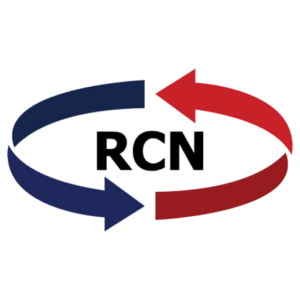Video Marketing in Real Estate: Why It Matters
What Is a Real Estate Salesperson?
A real estate salesperson is a licensed professional who manages property transactions on behalf of clients. They help individuals or businesses purchase, lease, or sell real estate. Their work can cover residential units like HDB flats and condominiums or extend into commercial and industrial property transactions.How to Become a Real Estate Salesperson
These are the necessary requirements to become a real estate salesperson:1. Meet the Educational Requirement
You are required to have at least 4 GCE ‘O’ Level passes or an equivalent qualification, such as the Workforce Skills Qualifications Workplace Literacy and Numeracy (WPLN) assessment.2. Complete the Real Estate Salesperson (RES) Course and Pass the RES Exam
Enrol in and complete the RES course, which equips you with the foundational knowledge needed for the profession. Upon completing the course, you’ll receive a Certificate of Completion, valid for two years. Be sure to take and pass the RES examination within this two-year window to stay eligible for registration.3. Register with the Council for Estate Agencies (CEA)
After passing the RES exam, submit your application to register with the CEA. If successful, you will first receive an In-Principle Approval (IPA). Full approval generally follows within four to six weeks. Once confirmed with your chosen real estate agency, you will be officially issued your Real Estate Salesperson licence.4. Fulfil Continuing Professional Development (CPD) Requirements
To maintain your licence, you must complete mandatory CPD courses as stipulated by the CEA. These courses help keep your knowledge and skills current in an evolving industry.Key Roles and Responsibilities of a Real Estate Salesperson
While the primary job description of a real estate salesperson is to facilitate transactions involving residential and commercial properties, their role encompasses far more than just buying and selling. These professionals often wear multiple hats, serving as market analysts, skilled negotiators, strategic advisors, marketing specialists, and trusted consultants. By mastering each of these key areas, a salesperson is well-positioned to deliver exceptional service and thrive in a competitive industry.1. Finding Properties
Helping buyers find the right property is one of the most fundamental duties of a real estate salesperson. This involves far more than conducting simple online searches. You need a deep understanding of market trends, buyer preferences, and the art of negotiation. Key responsibilities include:- Shortlisting suitable properties based on criteria such as location, price range, floor area, number of bedrooms, proximity to amenities, and future development plans.
- Scheduling and attending property viewings to give clients first-hand insights into each option.
- Researching property history, such as previous ownership, remaining lease tenure (for HDBs), and any zoning or planning restrictions.
- Advising clients on negotiation strategies and submitting offers on their behalf while advocating for their best interests.
2. Listing Properties
On the seller’s side, a real estate salesperson provides guidance to ensure their property sells quickly and at a good price. This requires a mix of market analysis, home presentation skills, and persuasive marketing. Key responsibilities include:- Conducting property appraisals using tools like Comparative Market Analysis (CMA) to determine an optimal asking price.
- Advising sellers on how to improve the property’s appeal, such as minor renovations, repainting, or staging furniture to showcase its full potential.
- Creating attractive and informative listings, which include writing compelling property descriptions and capturing high-quality photos and videos.
- Managing negotiations with prospective buyers to secure offers that align with the seller’s expectations and market value.
3. Property Valuation
The real estate salesperson must also be skilled at providing accurate property valuation. This is to ensure that both buyers and sellers make informed, fair decisions. A salesperson’s ability to evaluate a property’s worth can directly influence transaction success. Key responsibilities include:- Performing comparative market analyses (CMA) to analyse similar properties that have recently been sold in the area.
- Monitoring market trends, including price movements, supply and demand, and shifts in buyer sentiment.
- Advising clients on realistic pricing, ensuring buyers avoid overpaying and sellers don’t miss out on potential profits.
4. Advertising & Marketing
A key element of real estate success is how effectively a property is marketed. As such, real estate salespersons must be savvy in various marketing strategies to reach the right audience. Key responsibilities include:- Listing properties on the Multiple Listing Service (MLS) and high-traffic property platforms such as PropertyGuru and 99.co
- Creating social media campaigns across platforms like Facebook, Instagram, and TikTok to drive visibility.
- Running digital ad campaigns (e.g. Google Ads or Meta Ads) and using targeted email marketing to reach potential leads.
- Utilising traditional methods, such as distributing flyers in targeted neighbourhoods, placing banners outside properties, or tapping into word-of-mouth referrals.
- Producing video walkthroughs or virtual tours, offering remote access to interested buyers who may not be available to attend in person.
5. Hosting Open Houses & Property Viewings
Hosting open houses and private property viewings is a crucial part of a real estate salesperson’s role, as it allows potential buyers to experience the property in person. A well-executed open house or private tour can significantly influence a buyer’s decision, making it essential for the salesperson to have the ability to present properties in their best light. Key responsibilities include:- Organising and promoting open houses, both online and through local networks.
- Preparing the property for viewing, ensuring it’s clean, well-lit, and staged for maximum appeal.
- Engaging with potential buyers, answering their questions about the property and neighbourhood.
- Collecting feedback from visitors to provide sellers with insights that could help fine-tune their selling strategy.
6. Prospecting & Networking
While closing transactions is the ultimate goal in real estate, sustained success depends heavily on a real estate salesperson’s ability to consistently build and nurture relationships. Prospecting and networking are essential components of the job, as they help generate a steady stream of leads, referrals, and repeat clients. Key responsibilities include:- Attending industry events, community gatherings, and property launches to stay connected and increase visibility.
- Following up with past clients, staying top-of-mind for referrals and repeat business.
- Collaborating with professionals such as property investors, mortgage brokers, lawyers, and interior designers to build a reliable referral network.
- Maintaining an active online presence, contributing to local real estate forums or creating informative content to establish thought leadership.

Why Consider a Career as a Real Estate Salesperson?
If you’re wondering if becoming a real estate salesperson is the right career path for you, these are some of the benefits you can get from this profession:
1. Flexibility in Work Schedule
Unlike 9-to-5 jobs, salespersons often set their own hours. You have the option to work part-time or full-time, giving you control over your schedule. This flexibility is ideal for parents, career changers, or anyone seeking work-life balance.
2. Variety in Daily Tasks
A career in real estate is rarely monotonous. Each day brings new challenges and opportunities, from conducting property viewings and meeting clients to preparing listings and negotiating deals. The dynamic nature of the job can keep things interesting and enable you to continually build new skills.
3. Income Potential Through Commissions
Real estate sales are primarily commission-based, meaning your income potential is directly tied to performance and effort. While income is not fixed and can fluctuate with market conditions, the ceiling is high for motivated individuals willing to put in the work.
Get Started on Your Real Estate Career with Real Centre Network
If you’re considering a career as a real estate salesperson, it’s crucial to begin with a strong foundation. Understanding the licensing process, legal obligations and day-to-day responsibilities will not only set realistic expectations but also prepare you for long-term success. A career in real estate offers flexibility, variety, and the potential for substantial income. But it also demands commitment, professionalism, and continuous learning to stay ahead in a fast-moving market.
To support aspiring real estate salespersons, Real Centre Network provides CEA-approved RES courses designed to equip you with the skills needed to pass the RES exam and thrive in the industry. Facilitated by our experienced instructors and backed by a proven track record, our training programmes are tailored to meet the needs of both new entrants and experienced agents looking to upskill. They can share important insights into what it means to be a real estate salesperson, providing practical guidance and real-world examples to help you build a strong foundation for your career.
For more information, check out our guide on how to kickstart your real estate career in Singapore.
